Mark Anthony Neal's Blog, page 632
March 24, 2016
It Didn’t Have to Happen: Phife Dawg, Diabetes, and Black Health by Law Ware
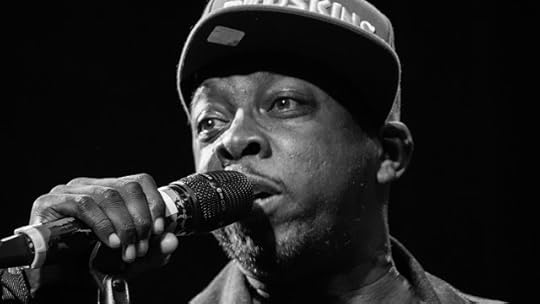 It Didn’t Have to Happen: Phife Dawg, Diabetes, and Black Healthby Law Ware | @Law_Ware | NewBlackMan (in Exile)
It Didn’t Have to Happen: Phife Dawg, Diabetes, and Black Healthby Law Ware | @Law_Ware | NewBlackMan (in Exile)When Kayne said the fans want the vibe of a Tribe Called Quest, but all they have is this guy called West—he was right. The breaking up of the Tribe left a vacuum in hip-hop…one that has not since been filled. These M. C.s from Queens married the sonic sophistication of jazz with cleverly virtuosic and soulful lyrics. While Q-Tip was the front man, Malik Taylor, better known by his stage name Phife Dawg, was pivotal to the group’s success.
Now that he is with the ancestors, much has been said about Phife’s artistry. He was a brilliant and technically gifted lyricist. He was nice with the puns. He was foundational to my generation’s musical formation, and, to this day, If I say to someone, “You’re on point, Tip” and they fail to respond with “All the time, Phife”—then we cannot be friends.
I loved his music. I loved his spirit; but what weighs heavy on my mind, what saddens me more than anything, is that he died so early; that his death didn’t have to happen. It didn’t have to be this way. Let me explain.
Last year my grandmother passed away after 90 years of love and sacrifice. I dreaded the funeral. I knew that the typical churchy platitudes would be said. Things like, “God called her home” and “God needed another angel.” I know better. I didn’t want to hear it. These clichés are said to make sense of what feels like absurdity—but her death wasn’t absurd. It made sense. She was 90. She lived long and well. It hurt, but it was natural.
This is precisely why the death of Malik Taylor angers me. It’s not God calling him home. God didn’t need another rapper in heaven. We are not powerless before the fatalistic forces of the universe. This is something that could have been prevented.
In the 2011 Documentary Beats, Rhymes, & Life: The Life and Travels of A Tribe Called Quest, Phife said of his love of sweets: “It’s really a sickness … Like straight-up drugs. I’m just addicted to sugar.” There we have it. Mystery solved. Diabetes killed Phife. He was vocal about his struggle with the disease since the 1990s—and it is a message we still need to hear.
The American Diabetes Association reports that 26 million Americans are living with diabetes; of that number, 4.9 million are African-Americans. That’s 18.7 percent. According to Dr. Elizabeth R. Seaquist, former president of Medicine & Science for the American Diabetes Association, "Diabetes affects every community, yet the rate of diabetes among African Americans is 1.8 times more likely than non-Latino whites.”
Phife’s struggle with the disease was not an isolated case. Diabetes is a serious concern in the black community—yet, it need not be fatal. Studies show that healthy eating, regular exercise, and losing weight can delay or prevent onset of the disease. Put simply, we must take responsibility for our health.
I’ve grown weary of hearing older black men and women talk about their ‘sugar acting up.’ I tire of black men unwilling to visit the doctor for routine check-ups. We must take seriously the health concerns facing our community; heart disease, diabetes, and hypertension are robbing us of black brilliance daily. I’ve been encouraged of late by Dr. Robert E. Young’s Healthy Preacher Movement, and I applaud Waka Flocka’s decision to become a vegan. We didn’t have to lose Phife Dawg, but the greatest tribute we can give is to make healthier choices.
***
Lawrence Ware is an Oklahoma State University Division of Institutional Diversity Fellow. He teaches in OSU's philosophy department and is the Diversity Coordinator for its Ethics Center. A frequent contributor to the publication The Democratic Left and contributing editor of the progressive publication RS: The Religious Left, he has also been a commentator on race and politics for the Huffington Post Live, NPR's Talk of the Nation, and PRI’s Flashpoint. Follow him on Twitter: @law_ware
Published on March 24, 2016 20:50
"Phife"--a Poem by Adam Mansbach
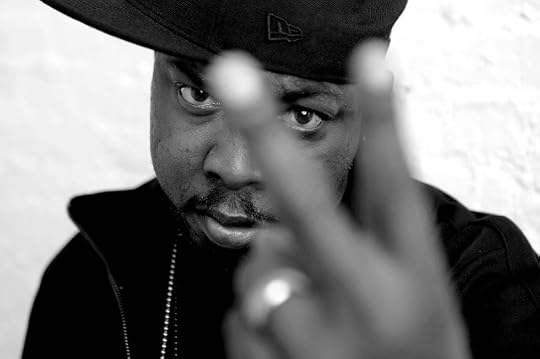 Phife
PhifeAll we wantedwas abstract to kick verses that made sense w/o being made of sense
that sublime slick awkward shituntethered to
any meaning you could get arrested for
whole steez wasone foot cocked backtibia parallel to earthsole holding up the wallhands folded mid thigh
screwface-nodding on the snare as if it snapped for no one else
post melle mel rrraaah post dmc locked knees post rakim hurricane eye quiet storm we had finally learned to let the party come to us
we wanted to be abstract & weren’tsweating the other cat
at firstbut yo
true MCsknow
that you can’t rollwithout the pick
or do all that ethereal shitbefore it’s been established that
new york is the town & the team is the knicks
w/o even meaning to wefound ourselveswriting phife lines
lookin forthat perfect half bar metaphor
snatchin names & meaningsout the thin air of pop cultureand sliding them right into the beat’s hip pocket
come to find outthat shit way harder than it look
come to find outthis dude quintessence of MChood likeginsu wordchop hands & getting jerked at shows &
everything ain’t futurism
words on rhythm words on rhythm
the boulevard battlersize 8s grippin earth
putting in workfor the love of the sport
all the time, phifeall the time
***
Adam Mansbach is a novelist, screenwriter, cultural critic and humorist. He is the author of the #1 New York Times bestsellers Go the Fuck to Sleep, which has been translated into forty languages, named Time Magazine’s 2011 “Thing of the Year,” and sold over two million copies worldwide, and the 2014 sequel, You Have to Fucking Eat. His novels include Rage is Back, Angry Black White Boy, and The End of the Jews, winner of the California Book Award, as well as the thrillers The Dead Run and The Devil’s Bag Man, and several middle grades titles. He is the co-author, with Alan Zwiebel and Dave Barry, of For This We Left Egypt? A Passover Haggadah For Jews and the People Who Love Them, forthcoming in 2017. He also wrote the screenplay for the motion picture Barry, about Barack Obama’s first year in New York City. Starring Devon Terrell, Anya Taylor-Joy and Ashley Judd and directed by Vikram Ghandi, it will have its theatrical release in late 2016.
Published on March 24, 2016 11:27
March 23, 2016
Lane Bryant, Tho...
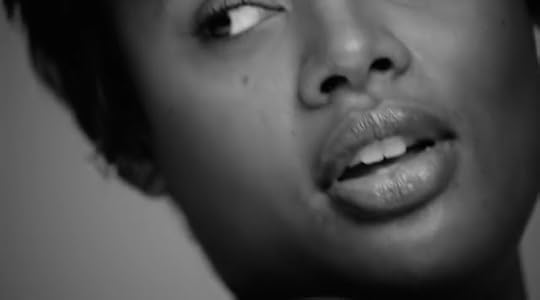 '#ThisBody is meant to be seen. Every curve. Every roll. Every inch. Unapologetic, strong and beautiful. Share on social. Tag #ThisBody. And show the world what your body’s made for at ThisBody.com. (Featuring Ashley Graham, Precious Lee, Tara Lynn, Denise Bidot and Georgia Pratt.)' -- +Lane Bryant
'#ThisBody is meant to be seen. Every curve. Every roll. Every inch. Unapologetic, strong and beautiful. Share on social. Tag #ThisBody. And show the world what your body’s made for at ThisBody.com. (Featuring Ashley Graham, Precious Lee, Tara Lynn, Denise Bidot and Georgia Pratt.)' -- +Lane Bryant
Published on March 23, 2016 21:07
March 22, 2016
One Word: Black Women on "Skin Tone"
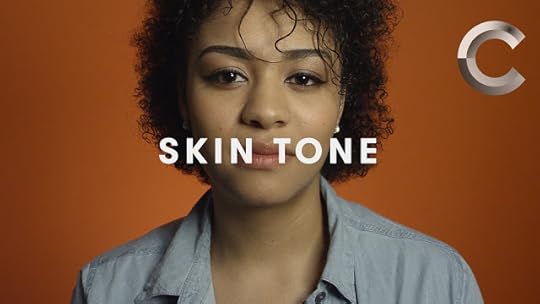 The folk at
Cut Video
ask a group of Black Women to provide a one-word response to the term "Skin Tone"-- +WatchCut Video
The folk at
Cut Video
ask a group of Black Women to provide a one-word response to the term "Skin Tone"-- +WatchCut Video
Published on March 22, 2016 20:26
The Combat Jack Show: The Kierna Mayo Episode
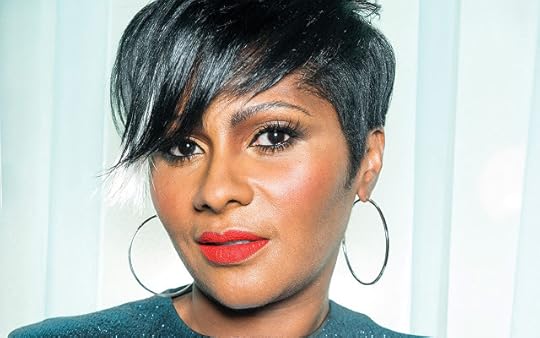 'Kierna Mayo has been in the publishing game for 20 plus years. From going to “Hip Hop” high school, to leaving her mark at The Source Magazine during its golden era, to launching Honey Magazine, she gave the world slices of her vision as to how she viewed Black culture. As Editor in Chief of Ebony Magazine, Kierna continues to give the world her vision, through powerful cover images to topics that keep the country talking.' +Combat Jack Show
'Kierna Mayo has been in the publishing game for 20 plus years. From going to “Hip Hop” high school, to leaving her mark at The Source Magazine during its golden era, to launching Honey Magazine, she gave the world slices of her vision as to how she viewed Black culture. As Editor in Chief of Ebony Magazine, Kierna continues to give the world her vision, through powerful cover images to topics that keep the country talking.' +Combat Jack Show
Published on March 22, 2016 18:07
“Back from the World”--Celebrating the Genius of George Benson--A Playlist
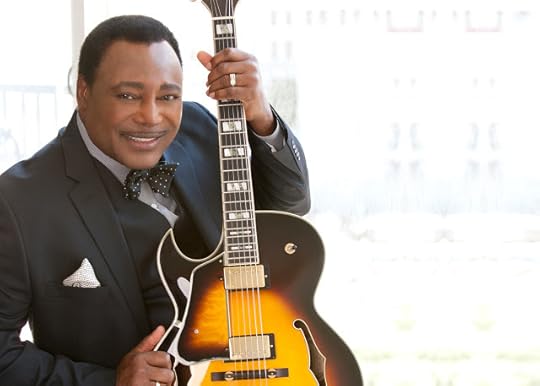 “Back from the World”--Celebrating the Genius of George Benson--A PlaylistCurated by Mark Anthony Neal | @NewBlackMan | NewBlackMan (in Exile)
“Back from the World”--Celebrating the Genius of George Benson--A PlaylistCurated by Mark Anthony Neal | @NewBlackMan | NewBlackMan (in Exile)George Benson is one of the most influential jazz guitarists of the later half of the 20th Century--the progeny of the great Wes Montgomery. While Benson’s legacy might have been stellar just on those grounds, he also possessed one of the finer Soul-Pop voices of that era.Benson translated both talents into a crossover career, that made him one of the most commercially viable R&B artists on the late 1970s and 1980s. Here is a short playlist of tracks that capture the genius of George Benson.
Tell It Like it Is (1969)
“Tell It Like It is” was a hit in 1967 for Aaron Neville, who of course sang in that sweet warbly falsetto that has defined his sound. Benson gave the track a bottom with his voice, and wrapped it with a rollicking rhythm section--with an exquisite cut-to-the-chase guitar solo--providing more of a NOLA bounce that the native Neville.
This Masquerade (1976)
When Benson dropped his Warner debut in 1976, produced by Tommy LiPuma, the purist hated it. No doubt “Breezin’”, which has as much to do with the emergence of Smooth Jazz than anything that Kenny G tried to do, would give pause to many a fusion fan. Two generations later though, the Bobby Womack composition still holds up. But the cornerstone of the album was the title track, written by everybody's favorite white composer of Black songs, Leon Russell (just ask Donny Hathaway about “A Song for You”). There is no explaining why this Grown-Ass ballad--the full 8-minute version is the kind of shit you listen to with some brown liqueur--become a pop hit, and eventually won the Record of the Year Grammy in 1977.
On Broadway (1978)
“On Broadway” was a 1960s classic brought to life by the one of later incarnations of The Drifters--the song itself written and composed by Lieber and Stoller, with Mann and Weil. Benson featured a version of “On Broadway” on his 1978 live album, Weekend in LA--which topped the pop charts--and the edited single, became the second of his top-ten pop hits.
Love Ballad (1979)
Benson is hedging his bets on the 1979 double album Livin’ Inside Your Love, between and betwixt his straight-ahead roots and his new crossover fame, covering pop-soul classics like Young & Holt’s “Soulful Strut,” Freddie Scott’s “Hey Girl” (which he kills), a syrupy version of “A Change is Gonna Come” and “Unchained Melody.” Of all the covers on the album, it is Benson’s cover of Skip Scarborough’s “Love Ballad”--as in the dude who wrote EWF’s “Can’t Hide Love”, “Lovely Day” for Bill Withers, and Anita Baker’s “Giving You the Best That I Got”--that sticks. The original version of the song, was a crossover breakthrough for Jeffrey Osborne and LTD in 1976, where it was performed as a true ballad. Benson again adds some bounce and turns it into a not-quite-disco classic.
Love X Love (1980)
If George Benson was looking for someone or something to finally bring together his dueling musical sensibilities, he certainly didn’t have to look far to find super producer Quincy Jones. Benson’s Give Me the Night is the middle movement of Jones’ greatest production efforts bookended by Michael Jackson’s Off the Wall (1979) and Jones’s own The Dude (1981)--arguably the three best Black albums (Diana Ross’s Chic produced Diana (1980), also considered) from that era. The connective tissue between the three albums, besides Jones, was songwriter Rod Temperton. The title track is a beast of a song--shit still pops more than 35-years later--but it’s the opener, “Love X Love” that best captures R&B’s aspirational spirit from that period.
New Day (1985)
Benson was navigating shifting R&B tastes--the move towards electronic instrumentation would not suit his style--when he linked with Cecil and Linda Womack on the sublime “New Day.” The song fashions a bit of Afrofuturism for a generation perhaps losing their hold on the value of that Soul harmony tradition that Womack, Womack and Benson so brilliantly represent on this track.
You Can Do It (Baby) (1996)
George Benson may have become an afterthought for those who found the Mark Whitfields and Russell Malones of the world more relevant, but he was not so for the them Masters at Work boys Little Louie Vega and Kenny Dope, who featured Benson on their now classic Nuyorican Soul. Benson’s contribution on “You Can Do It (Baby)”--starting with the Benson only minute-and-a-half introduction--puts a punctuation on a career and legacy that remains remarkable, not only in its longevity, but also in the ability of Benson to always bring his music--”don’t call it Jazz, it’s Social Music”--to the people, as he sings towards the end “you know I’m back from the world.”
Published on March 22, 2016 08:15
For Actress Regina King, A Childhood Gig Launched A Career In Hollywood
 'Regina King began acting professionally as a teen on the TV show 227. Now she co-stars in ABC's American Crime and HBO's The Leftovers. She also directs for television, but says "I absolutely love acting." -- +NPR
'Regina King began acting professionally as a teen on the TV show 227. Now she co-stars in ABC's American Crime and HBO's The Leftovers. She also directs for television, but says "I absolutely love acting." -- +NPR
Published on March 22, 2016 05:34
March 21, 2016
Left of Black S6:E22: Black Women + Transnational Identity + Visual Culture
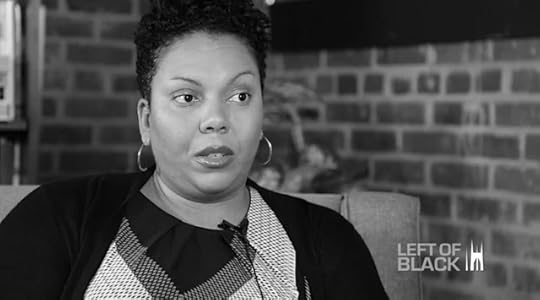 Left of Black S6:E22: Black Women + Transnational Identity + Visual Culture
Left of Black S6:E22: Black Women + Transnational Identity + Visual CultureLeft of Black host and Duke University Professor Mark Anthony Neal (@NewBlackMan) is joined in studio by Simone C. Drake (@SimoneCDrake), Associate Professor of African American + African Studies at The Ohio State University. Drake is the author Critical Appropriations: African American Women and the Construction of Transnational Identity (LSU Press) and the forthcoming When We Imagine Grace: Black Men and Subject Making (University of Chicago Press).Left of Black is a weekly Webcast hosted by Mark Anthony Neal and produced in collaboration with the John Hope Franklin Center at Duke University and in conjunction with the Center for Arts, Digital Culture & Entrepreneurship (CADCE).
***
Episodes of Left of Black are also available for free download in @ iTunes U
***
Follow Left of Black on Twitter: @LeftofBlack
Published on March 21, 2016 16:04
Revolutionary Socialism and the Black Panther Party by Lamont Lilly
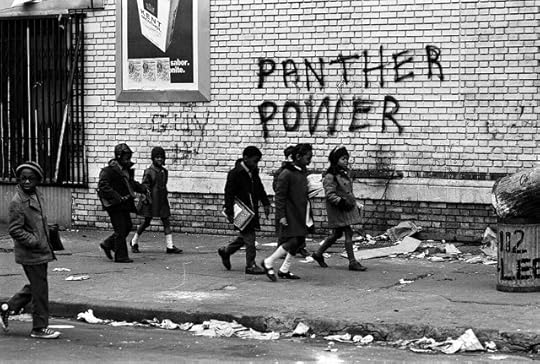 Revolutionary Socialism and the Black Panther Partyby Lamont Lilly | @LamontLilly | NewBlackMan (in Exile)
Revolutionary Socialism and the Black Panther Partyby Lamont Lilly | @LamontLilly | NewBlackMan (in Exile)Below is a slightly modified speech that Lamont Lilly gave at the 50th Anniversary Tribute to the Black Panther Party for Self-Defense on February 27th at the Solidarity Center in Manhattan, NY. Organizers requested insight on how the Black Panther Party applied revolutionary socialist theory. This is his response.
In January of 1971, Black Panther Party co-founder, Huey P. Newton declared, “The Black Panther Party grew out of the Black Power Movement, but the party transformed the ideology of Black Power, into a socialist ideology, a Marxist-Leninist ideology.”
This statement reflects the core of what the Black Panther Party subscribed to be, and by this time, how the Black Panther Party subscribed to think – through a Marxist-Leninist class analysis, an analysis with a unique emphasis on the Black community. Of course the Black Panthers addressed race, and they should have. Not only were they called the “Black” Panther Party, they formed as a means of Black survival, as a means of self-defense for Black lives against police terror.
The Black Panther Party formed because Black women, Black men and Black children were getting killed, brutalized and terrorized by the Oakland police, and quite frankly, because no one was doing anything about it. They formed because the Black community was in need of “land, bread, housing, education, clothing, justice and peace,” because they clearly realized that capitalism was an archenemy to Black Liberation.
My point, sisters and brothers, is that the Black Panthers weren’t just some reactionary collective full of misguided anger (as often portrayed). There was a science to their rage, specific ideologies from which they drew. Were the Panthers perfect? No! Were they young, serious, militant and well read? You damn right they were! And in addition to Black Power and self-defense, revolutionary class struggle was at the forefront of what they stood for.
As Fred Hampton of the esteemed Chicago chapter stated, “You don't fight racism with racism. We're gonna fight racism with solidarity. You don't fight capitalism with Black capitalism; you fight capitalism with socialism.”
Armed and well-aware, the Black Panther Party for Self-Defense considered themselves the vanguard. Not only were they razor-sharp on the issues of racism, colonialism and state violence, they were quite conscious of the fact that within impoverished communities, social, political and economic conditions are constantly in a state of flux. Changing.
Black Panthers adopted the notion of ‘dialectical materialism’ through a distinct lens of the Black experience. What was so brilliant about them is that they were the first Black Liberation organization that very actively lived these notions, not only in theory, but in a very practical everyday manner – in their own communities, on the streets.
I wanted to cite a brief excerpt from an excellent book on the Panthers, co-edited by former Black Panther Party member and Communications Secretary, Kathleen Cleaver. It’s called Liberation, Imagination and the Black Panther Party. I’ve learned that it’s always good to carry a few primary resources around with me. That way, others can fact check my facts, in case they don’t like what I’m saying [laughing]. This excerpt is from Chapter Two, entitled “Global Solidarity: The Black Panther Party in the International Arena.” It reads as:
“As Marxist-Leninists, the Black Panther Party advocated revolutionary struggle to establish a socialist society. Panthers turned to Marxist-Leninism for guidance in the Black Panther Party’s opposition to racism, sexism, and capitalism. For example, scientific socialist principles dictated gender equality among Party members as well as interracial and international solidarity. Bobby Seale explained, “The fight against male chauvinism is a class struggle—that’s hard for people to understand.” These principles also directed the Black Panther Party to [Vladimir] Lenin’s vanguard party notion. Black Panther Party members obviously viewed themselves as disciplined, full-time revolutionaries committed to mobilizing support for a socialist revolution (pg 29).”
So we can see and read for ourselves, revolutionary socialism was at their core, also reflected in many of their required readings. Along with The Autobiography of Malcolm X, and cultural cornerstones like Blues People by Amiri Baraka, many of the Black Panther required readings for their (PE) or Political Education classes were very much so focused on the intersection of the national question, class consciousness and revolutionary socialism.
Their reading list included: The Wretched of the Earth by Frantz Fanon, The Communist Manifesto by Karl Marx and Frederick Engels, Neo-Colonialism: The Last Stage of Imperialism and Class Struggle in Africa by Kwame Nkrumah , Che Guevara’s Guerilla Warfare, Vladimir Lenin’s What is to be Done, E. Franklin Frazier’s Black Bourgeoisie, and Mao Tse Tung’s Little Red Book.
In Mumia Abu-Jamal’s essay entitled, “A Life in the Party,” (extracted from Mumia’s 1999 master’s thesis) he describes the Black Panther newspaper as quote, “It attracted the class antipathy of the bourgeois and the petit-bourgeois, elements who traditionally constituted Black leadership.” As Mumia further states, “this voice called not for integration, but for liberation through revolution…a new voice that devalued bougie behavior and valued political activism against the U.S. Empire.”
The notion of international class struggle was a constant theme throughout their reading materials, and so was the the study of dialectical materialism. How could such principles NOT be? The Black Panther Party was founded in the working class black ghettos of Oakland, California, then onto Chicago, Philadelphia, Baltimore, Kansas City and Harlem.
And anyone who lives, or has lived in the ghetto knows damn well that you must be able to adapt to changing conditions. Because those who fail to do so, may very well, not survive. Sometimes, it’s unexpected layoffs. Sometimes, it’s the pigs, or the rent might be late. Sometimes, your car breaks down, or it’s long lines at the Social Services office. Sometimes, your children need new shoes, but the power bill is due. Past due! Y’all know what I’m talking about.
It was these very same conditions, sisters and brothers that Black Panther survival programs were creating solutions for. It was these very same conditions that Huey P. Newton was speaking on when he declared, “The Black Panther Party is a Marxist-Leninist party because we follow the dialectical method and we also integrate theory with practice. If we’re using the method of dialectical materialism, we don’t expect to find anything the same even one minute later, because one minute later is history.”
These young sisters and brothers were very sharp, comrades, much sharper than what the mainstream media wants us to realize. Most of them were well-disciplined and fully committed. Of course they wanted some Black Power. And so do I! They were Black people, living in small Black nations, confined to Black ghetto colonies where they were terrorized by white supremacy, exploited and disenfranchised through structural racism and systematic genocide.
At the same time, these were the same revolutionaries whose party motto was: All power to the people! Black power to Black people! Brown power to Brown people! White power to white people! Panther power to the Black Panther Party!
In hindsight, the Black Panther Party drew from an array of revolutionary socialist tendencies, transcending their resplendent blend of radical thought, into radical action, worldwide. In doing so, the Black Panthers grew way beyond the imagination of the party’s founders, attracting all kinds of people, from all walks of life. As Black Panther Party co-founder, Bobby Seale carefully notes, “The Black Panther Party drew thousands of members into forty-five chapters across the country, in less than four years.”
From co-founder, Huey P. Newton’s perspective, such growth must have seemed faster than the speed of light, almost unimaginable. In the essay entitled, “The Genius of Huey P. Newton,” author, Mumia Abu-Jamal writes, “When Huey went to prison, he knew every Panther in California, for he or Bobby had recruited him (or her). When he was freed on appeal in 1970, he emerged to a group that he neither knew nor built.”
With that said, of course things became difficult. Each chapter was slightly different, in different cities, in different regions of the country, reflected through an array of cultural tendencies. And let’s not forget the role of COINTELPRO, which very actively exacerbated the party’s decline. Quite frankly, it was COINTELPRO that was the primary cause of the party’s demise – the frame ups, the trials, the repression, the assassinations.
But I think what’s most important, particularly for this generation, particularly for this time and current movement is that we focus our time and attention on the revolutionary roots of the Black Panther Party, because it’s the roots that keep us grounded, roots of thought that help us to grow and fully develop. It’s the roots that keep us alive.
Keep pushing, sisters and brothers. Keep moving, keep learning, keep teaching, and let’s keep organizing. All power to the people! Right on!
■■■
NC-based activist, Lamont Lilly is the 2016 Workers World Party, U.S. Vice-Presidential Candidate. He has recently served as field staff in Baltimore, Ferguson, Oakland, Boston and Philadelphia. In 2015, he was a U.S. delegate at the International Forum for Justice in Palestine in Beirut, Lebanon.
Published on March 21, 2016 15:17
Strange Fruit:: Marley Dias and the Search for #1000BlackGirlBooks
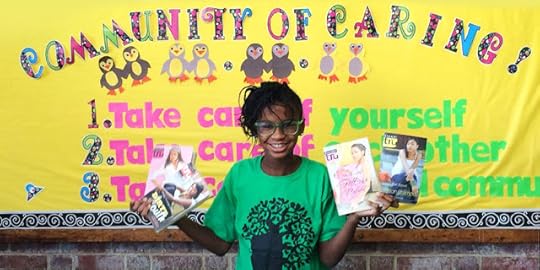 'Sixth grader Marley Dias loves to read. But the books she was assigned in school never seemed to have protagonists who looked like her. So she started a nationwide book drive to collect 1,000 books featuring black girls as main characters. By the time her self-imposed deadline came around, Marley had amassed a book collection she says is important not just for black girls, but for everyone. "We all know that America is er very, very, very diverse," she says, "but we're not really seeing it in the literature that we're pushed to read." Dias joins
#StrangeFruit
hosts Kaila Story and Jaison Gardner to talk about her efforts.'
'Sixth grader Marley Dias loves to read. But the books she was assigned in school never seemed to have protagonists who looked like her. So she started a nationwide book drive to collect 1,000 books featuring black girls as main characters. By the time her self-imposed deadline came around, Marley had amassed a book collection she says is important not just for black girls, but for everyone. "We all know that America is er very, very, very diverse," she says, "but we're not really seeing it in the literature that we're pushed to read." Dias joins
#StrangeFruit
hosts Kaila Story and Jaison Gardner to talk about her efforts.'
Published on March 21, 2016 03:31
Mark Anthony Neal's Blog
- Mark Anthony Neal's profile
- 30 followers
Mark Anthony Neal isn't a Goodreads Author
(yet),
but they
do have a blog,
so here are some recent posts imported from
their feed.



